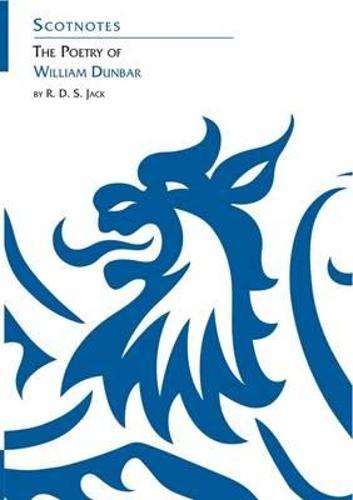
The Poetry of
WILLIAM DUNBAR
Ronald D. S. Jack
Published in: Paperback.
By: Association for Scottish Literary Studies, 1997
Price: £6.95
ISBN 978-0-948877-32-2
Along with his contemporary Robert Henryson, William Dunbar is the foremost figure of Scottish medieval literature. Writing as a court poet during the reign of James IV, Dunbar was at the intellectual heart of Scotland’s Renaissance. His poetry is among the greatest in the Scots language: sophisticated, versatile and stylish, the work of a master of considerable literary genius.
Ronald Jack’s Scotnote examines a number of Dunbar’s most important works – The Thrissil and the Rois, The Lament for the Makaris, The Golden Targe, The Twa Mariit Wemen and the Wedo and others – and explains the background, history, language and influences for senior school pupils and students at all levels.
CONTENTS
- Introduction
- At the Court of James IV
- Message and Medium: ‘To the Merchantis of Edinburgh’
- The Ladder of Style: Devilishness, Death and Damian
- Form and Meaning: of ‘Targe’ and ‘Tretis’